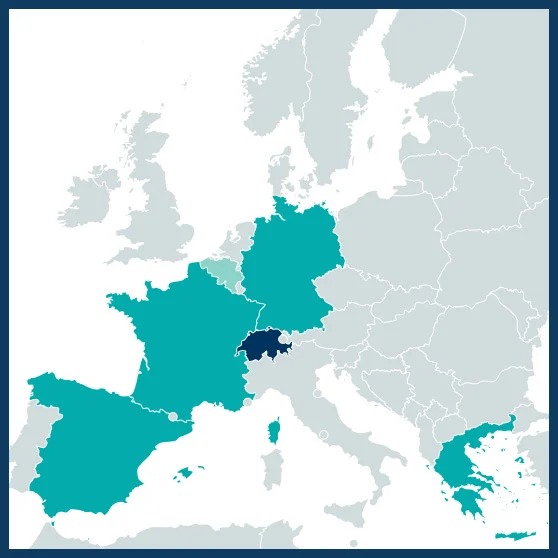01/04/2021 – 31/03/2024
€ 944,880
Martin Hartmann
martin.hartmann@usys.ethz.ch
Coordinator: Institute of Agricultural Sciences – ETH Zürich – Zürich – Switzerland
EU Projects and Research – European Landowners’ Organization – Brussels – Belgium
Agroecology – INRAE/ University Bourgogne Dijon/AgroSup Dijon/ UBFC – Dijon – France
Soil Biology and Plant Nutrition – University of Kassel – Witzenhausen – Germany
Institute for Astronomy, Astrophysics, Space Applications and Remote Sensing – National Observatory of Athens – Penteli – Greece
Applied Microbiology & Biotechnology – Leitat Technological Center – Terrassa – Spain

Climate change is affecting Earth’s biodiversity and the multitude of ecosystems services it provides. This is particularly problematic for agroecosystems, where climate change combined with unsustainable management threatens global food production. However, political actions that aim at quantifying and mitigating the impact of climate change and unsustainable management on biodiversity are not on track to be achieved in the near future. Soil microbial diversity is central to agricultural systems. Soil microorganisms interact with crops and carry out processes that promote plant growth, improve nutrient utilization, reduce greenhouse gas production, and increase resistance to diseases and abiotic stressors. There is great potential to harness these microbial functions while progressively decreasing the amount of chemical inputs in order to develop a sustainable and climate-resilient agriculture. However, the extent to which climate change affects microbial diversity is unclear and remains underrepresented in ongoing debates about climate change, global biodiversity loss and conservation policy.
MICROSERVICES will use a multi-domain approach to assess the impact of climate change on the crop-soil-microbiome nexus under various agricultural management regimes, with the aim to increase our capacity to predict and mitigate future climate change impacts on soil biodiversity and its cascading effects on agroecosystem functioning.
Shifts in soil microbial diversity, crop-microbiome interactions, and ecosystem multifunctionality across different agricultural management regimes will be assessed along natural European climate gradients with forecasted climate progressions into the future as well as using an in-situ field-scale drought simulation experiment. In the first part, regional climate models informed by Earth Observation data will identify specific ecoregions within the Atlantic, Continental, and Mediterranean biogeographic zones to create gradients of forecasted climate progressions. Wheat cropping sites along these climate gradients and across different conventional and conservational management regimes will be identified and sampled in collaboration with stakeholders from the EU agricultural value chain. In the second part, effects of drought will be simulated using rain-out shelters installed in one of the world’s longest running agricultural field experiment comparing different conventional and organic farming systems since 1978, the DOK trial in Switzerland. The multi-level responses of the crop-soil-microbiome nexus will be assessed by harnessing ground-breaking methods from different scientific disciplines that range from metagenomic assessments and isotope labelling techniques to the implementation of Earth Observation tools and machine learning algorithms.
Results will be made operative and accessible for stakeholders and policymakers through a communication and dissemination plan operating at the national (seminars, press releases, outreach activities) and European level (policy paper, communications to policymakers). MICROSERVICES will i) provide scientific insights into future impacts of climate change on soil biodiversity and associated ecosystem services, ii) promote political and public awareness of the importance of microbial diversity for sustainable agriculture, and iii) establish interactions between research institutions and agricultural stakeholders (farmers) for the field work, and between research institutions and policymakers to discuss the relevance of the results for policy agendas at the national and European level.